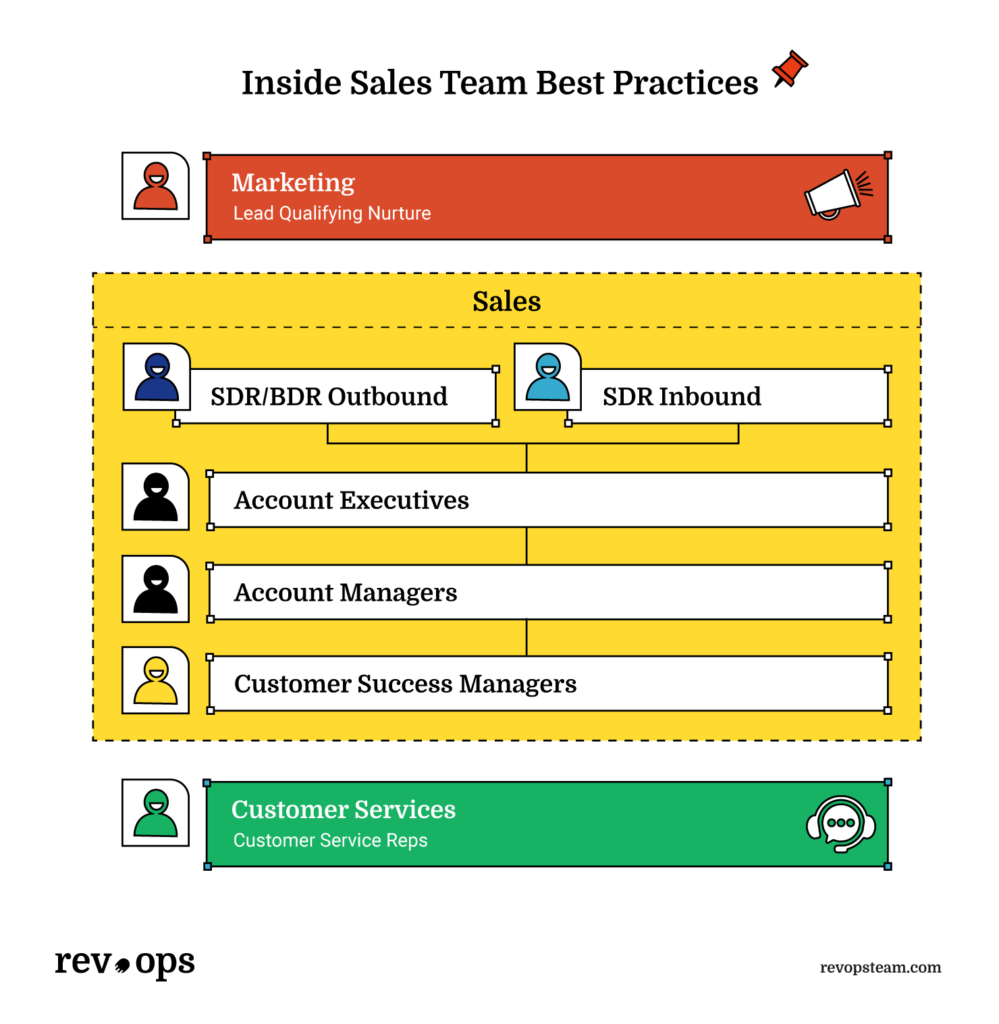Since the pandemic, inside sales have become a dominant sales model for sales reps in tech, SaaS, B2B, and B2C industries. Because remote sales were practically forced on businesses, they evolved to handle sales through alternative channels, including conference calls, phone calls, social media messaging, and text messaging.
So with the world wide open again, why do inside sales continue to thrive? In addition to 60% of decision-makers expressing a preference for virtual sales meetings, there are a number of other benefits for sales-based businesses. Learn more about those benefits and how they might apply to your organization.
What Is Inside Sales?
To make this definition absolutely clear, inside sales refers to any sales activities conducted from your office workspace. Inside sales reps conduct every part of the selling process remotely, without ever meeting a potential customer face-to-face.
Benefiting From Inside Sales
While outside sales has its own series of benefits, inside sales can provide something unique to the sales process, including:
- Leveraging tech to increase cost-effective operations
- Automation that allows sales professionals to dedicate more time to ancillary tasks
- More revenue predictability
- Unique opportunities for specialized roles
- Additional openings for coaching and collaboration
- Greater scalability for small business
- The ability to more easily adapt to changing demographics
1. Using Technology To Decrease Spend
Whether it’s a CRM software, marketing automation solution, cold calling tools, or a lead generation platform, inside sales teams can perform to the same (or higher level) as field sales reps with tools that help them find, contact, and track ideal prospects far more quickly to shorten sales cycles and reduce the cost for every acquisition.
2. More Time For Other Tasks
Selling is about more than just cold calling, follow-ups, and outreach to close deals. There are numerous prospecting and administrative tasks that help inside sales professionals with building relationships to enhance the customer experience.
3. Make Revenue Predictable
With the help of CRM tools, your business can more easily predict the revenue from each inside sales representative. With a lead-focused approach that integrates inside salespeople with your marketing team, they’re in an ideal position to collaborate and fill the sales pipeline. This is how the best customer relationship management works.
4. Discover Opportunities For Specialized Roles

Engaging with prospective customers at every level of the sales funnel means segmenting your sales organization appropriately. While outside sales reps may skip out on less profitable opportunities because they need to fill quotas, an inside sales team member can address those smaller prospects that may be profitable for your business in the long run.
You can map unique roles and responsibilities within your sales force that cater to buyers along every stage of the customer journey, capturing every opportunity and potential client that comes your way.
5. Push More Coaching and Collaboration
Because your inside team is in such close proximity to their sales managers, you have a better environment for team cohesion, coaching, and professional development. You can accelerate onboarding and enhance sales performance with in-person training.
6. Easier Scalability
Scaling up your inside sales model is easier and more affordable than doing the same with an outside sales team. You don’t have to worry about the inconvenience and expense of relocation because your inside sales process is fully remote. Additionally, inside sales reps have a variety of automation tools that free up their time from manual tasks to increase their workload capacity.
7. Enhance Adaptability
Because so many executives now prefer video conferencing and digital demos versus being won over via in-person meetings for lunch, a strong team can capitalize on this trend and take advantage of cross-sell and upsell opportunities as they present themselves.
Inside Sales Team Best Practices

Just because you’ve decided the benefits of inside sales are ideal for your needs doesn’t mean that implementation is completely effortless. Take a look at how to make this sales strategy work with these essential steps to a successful transition.
1. Find the Right Software
Capitalizing on the potential of effective lead management is part of what makes inside sales so successful. You need inside sales software that provides a data-driven approach with social analytics, CRM database, and sales call capabilities.
2. Align Your Sales and Marketing Teams
Making sure your sales and marketing teams are on the same page is essential to helping you find and properly nurture leads, as they are inextricably linked by the assets they provide. Marketing campaigns should be fully transparent and flexible, while the sales team should be as clear as possible about their needs.
3. Motivate Your Team
Whether it’s clearly defined metrics, sales gamification, or recognition, you need to keep your inside sales team happy in order to meet your sales goals. Make sure they can continue to face difficult clients and deal with recurring obstacles by celebrating small wins and providing continuous feedback for sales development.
4. Provide Ongoing Training
Business development is dependent on your team’s sales performance. Optimize B2B sales operations when you nurture the skills they need through continuous training, coaching, and recommendations. With more knowledge and advanced sales tools, your team can handle selling increasingly complex products without a single face-to-face meeting.
Some of the most essential skills you should cultivate with your sales reps include:
- Listening better, as remote customers don’t provide hints from facial expressions or body language to help reps gauge interest.
- Building rapport with every outbound call through authentic communications that show reps have done their research into a customer’s needs.
- Sticking to the ideal playbook for a more organized strategy ensures a standardized approach whether you’re talking to a lead via LinkedIn, email, or phone.
- Delivering on every promise, big and small, helps ensure your customers trusts your reps due to their reliability.
Key Takeaways
So what’s the point of all this information? When it comes to this type of sales, there’s a lot of room for improvement and growth for your team when compared to outside sales representatives — as long as you’re implementing best practices and taking advantage of advanced technology.
I’ve given you a place to start with a list of best practices and a few essential tools for your tech stack. Now, it’s up to you to build your team and transform your sales process to meet those expectations.
If you’re looking for even more guidance and advice, I recommend you read our article about sales gamification and subscribe to the RevOps newsletter. Here, you’ll get updated information on revenue operations trends and developments straight to your inbox on a weekly basis. Keep up with the industry and stay ahead of the curve with unique insights from the experts.


